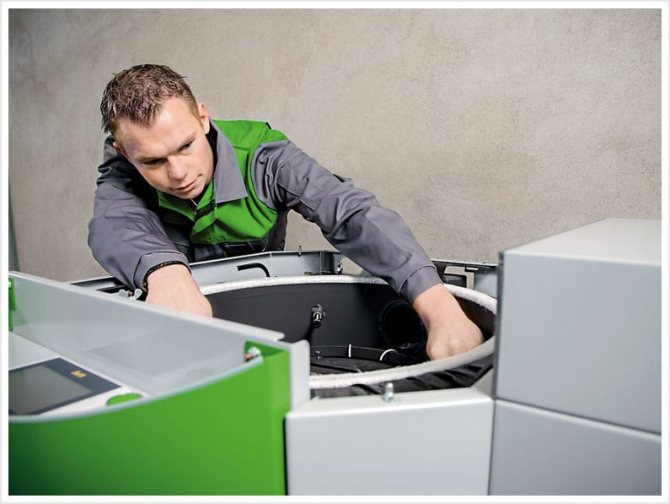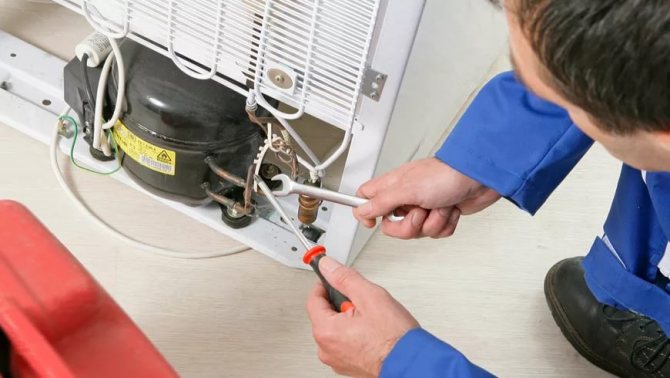As unfortunate as it may be, it must be stated that car drivers, in addition to having the advantage of comfortable travel, also face a series of difficulties associated with repairs and service. And it very often happens that cooperation with a car service develops into a hopeless battle to restore justice with enormous moral and material costs.
To be perfect, the service should function very clearly: I drove the car, paid for the services, picked up the repaired car, and without any conflicts. But in reality, everything is completely wrong, and the theory about a well-functioning service is often erroneous or completely incorrect.
A car malfunction is a problem, but its poor quality repair, which you paid for as a quality one, is already a tragedy. How can you force the performer to redo his work, and who will compensate for the damage? The answers to these questions can be found by carefully reading all the consumer rights, but it happens that translating them into reality becomes a very expensive pleasure.
What does warranty service mean? Terminology
When selling a product, the manufacturer provides the buyer with additional services.
Warranty service is the manufacturer’s provision of replacement of a faulty product or repair free of charge within a specified time.
To preserve the good name of the company, civil defense can be carried out after the expiration of the agreed period, but for a fee.

Consumer rights are protected by law, which obliges the manufacturer to eliminate the defect free of charge or replace the product within a specified time frame.
Replacement product during warranty repairs
Paragraph 2 of Article 20 states that if the product is returned for repair under warranty, the consumer may express a desire to receive a replacement product.
It is issued for the period while the original product is being repaired. By definition, the replacement must have the same characteristics as the original. Provided within 3 days free of charge, but only upon written request. If the application has not been written and the claim itself also does not require the issuance of a replacement product, you should not count on receiving it.
example of an application for the provision of a similar product for the period of repair in .docx format (Word) But this does not mean that you can get a replacement for any product. There are exceptions that are not provided for the period of repair:
- Cars and motorcycles, their components.
- Furniture.
- Watercraft.
- Electrical household appliances used for hygienic or medical purposes. These are hair dryers, heating pads, electric toothbrushes, electric shavers, etc.
- Electrical appliances designed for cooking.
- Weapons - both bladed and firearms, their components.
If a replacement product has not been issued, then a penalty of 1% of the cost of the product is calculated daily, which is then paid to the consumer.
It is worth noting that often payments of this nature can only be obtained in court or by threatening the company with court.
What is the warranty period? How long can I apply?
When purchasing a product, the warranty period is set by the manufacturer of the product. This could be several months or years. Also in rare cases it is several days.
When making a purchase, the buyer should inquire about the warranty period. For well-known companies that care about their reputation, it usually always exists. It is possible that there is no warranty service.
It is worth remembering about the “Consumer Rights Law”, which protects the rights of the buyer when making purchases.
The legislative framework
The Law “On the Protection of Consumer Rights” establishes the buyer’s right to timely elimination of breakdowns and defects of the product at the expense of the manufacturer, and in some cases, the seller himself.
By law, the manufacturer independently sets a period during which he guarantees the serviceability of his product and guarantees free troubleshooting. This could be 1–2 months or several years. In addition, the seller has the right to set an additional period, increasing the period of provision of free services. He assumes obligations to troubleshoot problems and pay various types of penalties.
The manufacturer may not indicate the period during which warranty repairs are possible. But at the same time, according to Article 19 of the law we are considering, the buyer of a product has the opportunity to make a claim regarding its quality for 2 years from the date of purchase. Please note that this period also applies to those products whose warranty period is much less than 2 years.
The guarantee assumes that when you contact, you receive free repair of the item, regardless of whether this requires ordering parts or not.

If its purchase involves delivery by mail or courier service, then the period is counted from the moment of receipt .
There are a number of products for which the warranty period begins to count from the onset of a certain season. This rule includes seasonal goods such as clothing and shoes.
The buyer has the right
If a defect in the product is discovered during the warranty period, the buyer has the right:
- Free product repair.
- Demand reimbursement of repair costs.
- Proportional price reduction.
- Terminate the purchase and sale agreement and demand the return of funds.
- Replace the product with a similar one.

A defect that arose through the fault of the manufacturer, which cannot be eliminated and requires the exchange of goods, must be confirmed by a special examination within a specified time frame. It is necessary to confirm the presence of one of the following symptoms:
- Repair is not possible.
- Repair costs will make the item much more expensive than stated in the contract.
- The repair will last more than 14 calendar days, unless another period is agreed with the buyer.
Before contacting the service center to provide warranty services for the product, you must make sure that the operating rules and more have not been violated. More on this later.
Warranty period for household appliances after repair
A consumer who purchases a product expects it to serve for a long time while maintaining its functionality. However, sometimes defects are found in a product that spoil the appearance and/or make it impossible to use the item for the purposes for which it was produced.
And if the product warranty has not yet expired, one of the options would be to require the seller (manufacturer) to carry out free repairs.
For example, the manufacturer set the warranty period for a purchased microwave oven to 1 year. However, after some time, the purchaser discovered a serious defect in it and, having sent a written complaint to the seller, sent it in for repair. The work to restore the functionality of the furnace took exactly a month.
It is not difficult to guess that during this time the client could not use the device, so it seems quite fair to extend the warranty period for this period.
That is, if the specified period ended on May 1, then, after the completion of the repair work and the client’s acceptance of the repaired stove, the end date is postponed to June 1 of the same year (provided that the period is calculated in months).
The certificate issued after the repair must include the following information:
- the date you contacted the seller (manufacturer or service center) with a complaint;
- list of detected defects;
- conclusion about the cause of defects;
- list of work performed and parts replaced;
- the date the corrected product is returned to you.
If you want to save time on sending the goods from the seller to the service center, contact the latter organization directly. If the availability of the item is more important to you, in most cases it will be easier to transfer the unusable item to the seller.
How is the guarantee issued?
When purchasing household appliances, the buyer receives a warranty card along with the sales receipt.
It contains the following information:
- Date of purchase.
- Seller details.
- Buyer details.
- Product information.
- Signatures of the buyer and seller.
The warranty periods are also indicated on the packaging.
The buyer has the right to seek assistance within the entire specified time.
As a rule, warranty cards indicate service centers where you can contact in case of a breakdown.
Car warranty concept
Almost every product purchased in our country has a mandatory fixed warranty period. This rule also applies to cars.
If a breakdown is detected within the period of time established by law or by the manufacturer, the owner of the vehicle has the right to contact dealers or retailers. Sellers are then required to provide free service.
Important! Unpaid repair work is guaranteed only in the event of problems with the car, unless the culprit of the situation was improper operation of the vehicle.
Among other things, the car owner is responsible for undergoing a free technical inspection provided by the car manufacturer. The main provisions concerning the relationship between sellers and buyers in such cases are regulated by Federal legislation, in particular the Law “On the Protection of Consumer Rights” is applied, and the paragraphs “Regulations on warranty repairs of motorcycles and passenger cars” are also used.
When considering defects, the seller’s side approaches each case individually. To identify a case that falls under the terms of free service, dealers are guided by a standard contract. If the specified breakdown is registered, then payment for repair services is borne by the party that provided the defective product.

The following schemes are used in practice:
- the car is serviced in accordance with current legislation, a six-month period is provided for cars in the Russian Federation;
- the guarantee is given by a legal entity - the manufacturer;
- When selling a car, additional services may be provided by the dealer.
The type of vehicle affects the scope of work and the period of preferential service. Automobile plants are looking to extend this time frame and expand the types of work to stimulate sales.
Buyers need to be as careful as possible when considering offers from dealers. Their recommended periods should not be lower than those established by law and the manufacturer.
Warranty agreement. Peculiarities
In some cases, a warranty service agreement is concluded. One of the parties is the buyer or customer, the other is the seller or manufacturer.
The contract must indicate:
- The name of the product or service provided that is the subject of the contract.
- Contract time.
- Data of the parties who entered into the contract.
- Conditions for providing obligations.
- Cases excluding warranty service.

The contract specifies the rules for using the product. If they are violated, free GO may be denied.
The contract may include possible product defects, which are subject to free replacement during the warranty period.
If the breakdown occurred due to the fault of the buyer, the manufacturer has the right to refuse free repairs, justifying its refusal with an appropriate conclusion.
The contract also specifies the time frame within which the product is repaired or replaced, and the liability of the parties in case of violation of this clause.
How to calculate the time frame for repairs under a warranty service agreement?
In the Civil Code of the Russian Federation you can find information regarding the rules for calculating warranty repair periods.
This period is established by the Law, an agreement between the contractor and the client, as well as the court. This is a specific calendar date, as well as a period of time, which is calculated in years, months, weeks, days and hours.
Typically, the warranty period is calculated in time intervals. The warranty period is enshrined in the Law “On the Protection of Consumer Rights”, and it is this that is taken into account by the ASC.
Some companies set a special period for repairs, which is called the free service period (FSO). This applies, for example, to Samsung.
Basically, the warranty period is calculated in months. The most common period is considered to be 12 months, and the BSO period is 36 months.
Important! The warranty period begins from the moment the goods are transferred to the buyer (Clause 2, Article 19 of the Labor Code).
For example, if a product was purchased on March 1, 2020, then its warranty period will end on March 1, 2020. At the same time, the BSO period will end on March 1, 2020. Many questions arise in connection with the presence of holidays during the expiration of the warranty period.
Note! If the end date of the warranty period falls on a holiday, the actual end date of the warranty period is the working day following the holiday (Article 193 of the Civil Code of the Russian Federation).
Consider the following example. You purchased the product on May 1, 2020. That is, the warranty period will expire on May 1, 2020, and this is officially a holiday. The day after May 1 is also a holiday. Thus, the end of the warranty period for repairing the product will be considered May 3, 2020.
It turns out that the buyer has the right to make a claim for warranty repairs on the last day of its validity. In the specific case under consideration, we are talking about May 3. But there is one more feature in the terms of warranty repairs. It concerns different lengths of the calendar month (30 days, 31 days, 28 days). What to do in this situation?
In Part 3 of Art. 192 of the Civil Code of the Russian Federation states in this regard that if the warranty period, calculated in months, falls on a month in which there is no such date, the end of the warranty will be considered the last day of this month.
Let's assume that you bought the phone on February 29, its warranty period expires after 36 months, that is, on February 28 (since the product was purchased in a leap year).
Warranties are valid. When is a contract valid?
It should be noted under what conditions warranty service is possible:
- The product doesn't work.
- All warranty documents are present and filled out correctly.
- The buyer did not violate the operating rules for the transportation and storage of goods.
- No repairs were carried out independently, and the product body is not damaged.
It is important to know that establishing the warranty period is the responsibility of the manufacturer. The seller has no right to change or cancel this.

The seller is responsible for damage that is discovered during purchase, but is not guaranteed.
The procedure for repairing purchased equipment that is under warranty
Let's look at in which case the contractor provides a guarantee.
The owner can count on warranty repair of equipment in the following situation:
- When a manufacturing defect is discovered, that is, malfunctions appeared as a result of a violation of the product’s production technology, as well as due to the use of spare parts or components of poor quality;
- The manufacturer undertakes to replace free of charge spare parts and equipment that become unusable during the warranty period;
- A guarantee for installation and maintenance is provided by an organization that has the appropriate certificate, experience, and also complies with the necessary rules for installation and maintenance. Service and maintenance are carried out by trained end-user specialists who have a certificate confirming the right to provide these services;
- If specialists have been trained at the manufacturer’s base, they can service the equipment under warranty for two years. The warranty period cannot be extended unilaterally. To do this, it is necessary to sign a special agreement by representatives of three parties: the user, the manufacturer and the organization involved in the repair. The agreement contains the terms and conditions of warranty service for equipment, conditions for warranty repairs, etc.;
- The person supplying the equipment to the market is not liable for damages of any nature (special, incidental, punitive, consequential). We are talking about loss of income, damage to property, a claim from a consumer, etc. Warranties provided by the manufacturer or supplier must in no way infringe the legal rights of consumers;
- The Contractor can accept equipment for warranty repairs only if there is a warranty card. This document is issued to the consumer at the time of purchase of the product. The coupon must contain the signature of the official (representing the end user) responsible for the use of the equipment. If there is no warranty card, repairs can only be performed at the owner’s expense;
- The service organization or contractor is responsible for checking the equipment and identifying deficiencies, drawing up an inspection report and confirmation of the warranty case, and transporting the goods to the place of service work;
- Components, spare parts, as well as the equipment itself can be accepted for warranty repair if there are accompanying documents indicating the identified problems, the date of purchase of the goods, the organization’s details, and contact numbers. A special requirement is that the description of the malfunction must be clear and concise;
- Equipment and spare parts that are accepted for free repairs undergo diagnostics to identify declared faults. If no faults are found, the equipment will not be accepted for service, and no one will exchange a working product for a new one. When upon receipt of the goods, problems caused by improper operation are identified, it will be returned to the owner. Otherwise, repairs will be paid at the buyer's expense. Based on the inspection, a special act will be drawn up, and the result will be reported to the relevant organization;
- If the equipment or its individual parts cannot be repaired, then new ones (included) are supplied instead. In this case, equipment or components that were replaced during warranty service are not returned to the owner.
Warranty service is not covered
You should know in what cases it will not be possible to repair a product under warranty:
- The warranty card or agreement is filled out incorrectly. There are corrections in the documents.
- The product was brought into the country illegally.
- The serial number of the product does not match that specified in the coupon or contract.
- An unauthorized repair attempt was made.

- The seal is broken.
- The product was used for other purposes.
- The conditions of operation, storage and transportation of the goods were violated, which caused a breakdown.
- Consumables of poor quality or not meeting the stated specifications were used.
- “Infection” with virus programs.
- The components have worn out due to intensive work.
- The breakdown occurred due to the fault of animals or insects. For example, a wire is damaged.
At the service center, refusal to perform warranty service must be provided in writing, indicating the reasons.
Equipment repair

Warranty and non-warranty repair of equipment is regulated by the Law “On the Protection of Consumer Rights” (Articles 4-17, 19, 20, 23, 28, 29, 35), as well as the Rules for Consumer Services in the Russian Federation (approved by Decree of the Government of the Russian Federation No. 1025 dated 15 August 1997) and the List of durable goods that are not subject to the buyer’s requirement to provide him free of charge for the period of repair or replacement of a similar product (approved by Decree of the Government of the Russian Federation No. 55 of January 19, 1998).
What do you need to know when handing over equipment to a service center and picking it up for repair?
What to do if the item was not repaired at the service center and/or was damaged?
In what case can a consumer be provided with a similar product for temporary use?
Let's start with the fact that repairs can be warranty or non-warranty (that is, paid). The first is carried out at the expense of the seller or manufacturer of the goods during the warranty period and is carried out by service centers that have concluded agreements with the trading organization or with the manufacturer. The basis for such repairs is a warranty card or a note in the service book about warranty obligations. The addresses of specialized centers for goods of this brand are usually indicated there. As for non-warranty repairs, everything is much simpler here: you choose a repair organization, pay money, and wait for the item to be repaired.
Repair time
Regarding warranty repairs, clause 1, art. 20 of the Law “On the Protection of Consumer Rights” establishes: “If the period for eliminating defects is not determined in writing by agreement of the parties, then these defects must be eliminated immediately, that is, within the minimum period objectively necessary to eliminate them, taking into account the method usually used.” And the maximum repair period established by the contract cannot exceed 45 days . If the seller did not have time to repair the goods during this time, then a new period may be determined by agreement of the parties. But at the same time, the lack of spare parts, necessary equipment and other excuses do not relieve the service center from responsibility and are not grounds for a new deadline. As for paid repairs, its period must be specified in the contract, but the Law does not establish a maximum repair period.
If the workshop does not have time to repair the equipment on time, the consumer has the right to demand payment of a penalty (penalty) for late payment. If we are talking about warranty repairs, then the penalty is 1% of the price of the goods for each day of delay (Article 23 of the Law of the Russian Federation “On the Protection of Consumer Rights”). If the consumer carries out repairs at his own expense, the penalty will be higher - 3%, but not more than the total cost of repairs. In this case, clause 5 of Art. 28 of the Law “On Protection of Consumer Rights”. By the way, please note: for warranty repairs, the amount of the 1% penalty is unlimited. The penalty is calculated until the day the work is completed, and in case of a long delay in its payment - until the day the consumer's claim is actually satisfied. The actual start of the repair should be indicated in the contract so that both parties know from what date the days are to be counted.
Note!
We would like to remind you that the requirement for free elimination of product defects (that is, for warranty repairs) is only one of five possible ones that a consumer can present to the seller (Clause 1 of Article 18 of the Law “On Protection of Consumer Rights”). If during the warranty period the purchased product breaks down, it is not necessary to take it to the service center. You can contact the seller and demand a replacement, a proportionate reduction in the purchase price, or termination of the sales contract with a refund. In this case, the right of choice belongs to the consumer, and the seller cannot force him to return the item for repair.
I need an analogue!
If the repair is carried out under warranty, the consumer may demand that within three days he be provided with a similar product free of charge for the period of repair. This right is granted in paragraph 2 of Art. 20 of the Law “On Protection of Consumer Rights”. However, in order to exercise this right, the consumer himself must state this requirement to the service center (or the seller of the product). While repairmen, on their own initiative, are not required to provide such a replacement. And further. There is a List of durable goods that are NOT subject to the buyer's requirement to provide them free of charge for the period of repair or replacement of a similar product. It includes:
1. Cars, motorcycles and other types of motor vehicles, trailers and numbered units for them, except for goods intended for use by disabled people, pleasure craft and watercraft.
2. Furniture.
3. Electrical household appliances used as toiletries and for medical purposes (electric shavers, electric hair dryers, electric curling irons, medical electric reflectors, electric heating pads, electric bandages, electric blankets, electric blankets).
4. Electrical household appliances used for heat treatment of products and cooking (household microwave ovens, electric ovens, toasters, electric boilers, electric kettles, electric heaters and other goods).
5. Civilian weapons, main parts of civilian and service firearms.
As you can see, this List does not include mobile phones, televisions, computer equipment and similar goods. So if, say, you sent a laptop or mobile phone to be repaired, you may well demand that they provide you with an analogue during the repair.
Diagnostics
Paid repairs also have their own characteristics. First, the item is submitted for diagnostics, for which they immediately charge money. When the results are received, the consumer will be told what exactly the problem is and how much the repair will cost. If the owner agrees to have the item repaired, the cost of the diagnosis is usually included in the price of the repair. And if not, then the money for diagnostics will not be returned.
Sometimes the client only needs diagnostics and an opinion on the condition of the equipment, and not its repair. In this case, the service center is obliged to issue not a repair invoice, but a certificate of acceptance of the equipment for diagnostics. And accordingly, you pay for diagnostics as a separate service.
Receiving the item after repair
According to clause 19 of the Rules for Consumer Services in the Russian Federation, when issuing repaired household radio-electronic equipment, household machines and appliances, the contractor is obliged to demonstrate their impeccable operation. If it turns out that the repair was carried out with shortcomings, then in accordance with Art. 29 of the Law “On Protection of Consumer Rights”, a customer of a service center has the right, at his own discretion, to demand:
• free elimination of deficiencies in the service provided (work performed);
• a corresponding reduction in the price of the service provided (work performed);
• repeated performance of work (service);
• reimbursement of expenses incurred to eliminate deficiencies in the service provided (work performed) on their own or by a third party.
Also, the customer may refuse to fulfill the contract and count on full compensation for losses if, within the period established by the contract, the contractor does not eliminate the shortcomings of the service provided (work performed), as well as if the owner of the thing discovers significant deficiencies in the service (work) or other significant deviations from terms of the contract.
The consumer has the right to insist on drawing up a bilateral report on the identified deficiencies. In the future, such an act will be required when presenting claims to the service center for compensation for damage caused, and if the service center refuses to compensate for it, to prove the latter’s guilt in court.
Lawyer's comment
The following situations often arise: a consumer brings a faulty product to a service center. They promised to make diagnostics and establish the cause of the breakdown, but three days later they call and say that the product has been repaired and can be picked up. And they name the cost of repairs, which is almost 80% of the price of a new product. But the customer did not expect such a sum at all. For such cases, the law provides for the obligation of the service center to agree with the client on the cost of the repair BEFORE it begins. If this was not done, but the repairs were carried out, the consumer has the right to refuse payment. In this case, the workshop cannot retain the returned item and must return it to the customer. You can do the same thing if you agreed on one price with the consumer, but during the repair process it was necessary to do additional work for which you need to pay extra. If these works have not been PRE-agreed with the client, he may refuse payment and pay only the amount that was originally agreed upon with him.
Additional expenses
The Contractor does not have the right to impose additional paid services on the consumer or condition the provision of the service on some other paid services (clauses 2-3 of Article 16 of the Law “On Protection of Consumer Rights”). To avoid such misunderstandings, it is necessary to carefully study the contract. It must indicate the full scope of work performed. And the masters have no right to deviate from it, either more or less, unless this is agreed in writing. If during the repair process it turns out that the breakdown is more serious than expected, and additional costs are required to eliminate it, the service center must notify the consumer about this and obtain his consent to continue the repair.
Note!
During warranty repairs, the warranty period for the product is extended by the period during which the product was not used (that is, it was under repair). Clause 3 Art. 20 of the Law “On Protection of Consumer Rights”.
Current issues
During the warranty period, I contacted the service center three times regarding problems with the motor of the electric sewing machine. In total, she was under repair for 105 days. However, this did not help, and the engine began to act up again. I went to the service center again. But they told me that now I have to pay for the work because the warranty period has expired. Are the service center workers right?
According to paragraph 3 of Art. 20 of the Law of the Russian Federation “On the Protection of Consumer Rights”, if the defects of the product are eliminated, the warranty period for it is extended for the period during which the product was not used. This period is calculated from the date of the consumer’s request to eliminate defects in the product until the day the product is issued upon completion of the repair. Thus, if your machine was repaired within 105 days, then the warranty period is extended by the same 105 days. Moreover, during this time you have every right to present to the seller (manufacturer, importer) a demand for a replacement of the sewing machine or a refund for it.
I sent my computer system unit in for repair. According to the receipt, the service center was supposed to replace the motherboard, video card and hard drive. I paid the full cost of the work - 12,270 rubles, but for some reason the craftsmen only replaced the motherboard. Having learned about this, I demanded that the money be returned to me for the uncompleted work, but they refused to do this. Are the actions of the service center legal?
No, they are illegal. According to Art. 4 of the Law of the Russian Federation “On the Protection of Consumer Rights”, the seller (performer) is obliged to transfer to the consumer a product (provide a service), the quality of which complies with the terms of the contract and the requirements of the standards. In accordance with Art. 29 of the Law, if a deficiency in a service is detected, the consumer has the right to demand a reduction in its cost. Taking this into account, you can pay the service center only for the work of replacing the motherboard, and the rest of the amount must be returned to you. This requirement must be made in writing and must be satisfied within 10 days from the date of receipt of your claim. In case of violation of the deadline established by the Law, representatives of the service center are obliged to pay you a penalty for each day of delay in the amount of 3% of the contract price (Article 28 of the Law “On Protection of Consumer Rights”). In addition, if your requirements are not met, you can contact state regulatory authorities, for example, Rospotrebnadzor. After all, your rights under consumer protection laws have been violated.
Arbitrage practice
The hero of this story, S., submitted his laptop for warranty repair. More than two months passed, and S. became interested in the fate of his computer, which, according to the contract, was supposed to be repaired within 40 days. The company stubbornly refused to return the laptop, as well as to draw up a report stating the impossibility of carrying out the repairs that the owner requested. According to the Law “On the Protection of Consumer Rights,” he had an inalienable right to terminate the sales contract and return the money through the store where the laptop was purchased, but for this, the trading organization needed to obtain a certificate from the service center. And he, as we remember, played a silent game, although S. sent a demand to issue such a conclusion within 10 days, and also to voluntarily pay the penalty.
In Art. 20 of the Law “On the Protection of Consumer Rights” states that product defects must be eliminated immediately or within the period stipulated by agreement of the parties (in our case, 40 days). In accordance with Art. 22, 23 of the Law, for violation of the deadline for satisfying consumer requirements for repairs, liability is provided in the form of a penalty - 1% of the price of the goods for each day of delay. At the time when S. decided to file a claim in court, the “lateness” was 227 days. The cost of the laptop is 52,900 rubles. 1% of the specified amount - 529 rubles. This means that for 227 days of delay, the service center owed the owner of the equipment 120,083 rubles.
Plus, S. pre-trial demanded that the service center show him the laptop that was handed over for repair, but this demand was not satisfied. This allows us to conclude that the computer was simply lost. Based on Art. 35 of the Law, S. demanded to pay him twice the cost of the laptop (105,800 rubles), as well as compensation for moral damages and legal expenses (Articles 14-15 of the Law “On Protection of Consumer Rights” and Article 15 of the Civil Code of the Russian Federation).
After hearing both sides, the court fully satisfied the consumer’s demands, while assessing moral damages at 20,000 rubles. In total, S. received 257,883 rubles. A well-deserved compensation for months of suffering.
How is the repair going?
Let us pay attention to how to act if a product breaks down, the warranty period of which has not yet expired.
The service center or store where you can contact for help is indicated in the attached coupon or agreement. You must have with you:
- Warranty card.
- Service book.
- Warranty service agreement.
- Technical certificate.
- Any of the listed documents indicating the warranty period.
- Receipt of payment for goods. But the law does not require it.
When returning the product for repair, be sure to note any external damage, if any. Describe them and take a photo.
If the product is not large, you can deliver it to the service center yourself (for example, a phone or camera). If a large item breaks down, the party performing warranty service transports the item using its own resources. For example, a washing machine.
The buyer has the right to reimburse transportation costs incurred for the delivery of large goods.
The service center can provide goods for temporary use while your product is being repaired (for example, a refrigerator, TV).
Not all goods can be issued for temporary use.
Warranty repairs must be carried out in the shortest possible time. But it should not last more than 45 days.
It is possible to draw up a contract that will stipulate the repair time.
The warranty service issues a receipt indicating:
- Name of product.
- Model, make and serial number.
- Date of receipt of goods.
- Repair period. If this clause is violated, the party is liable according to the contract.
If a product frequently breaks down during the warranty period, you have the right to a replacement or refund.
Extension of warranty for the period of repair
Since its inception, the Consumer Rights Law has changed, and one of the latest innovations is the maximum repair period under warranty, which should not exceed 45 days.
In the event that the parties do not agree on a specific deadline, then we are talking about immediate troubleshooting.
In the practice of some service centers, there is such a pleasant moment for consumers as providing a replacement product during repairs. Although cars, motorcycles and numbered units are not among the products for which this service is required for repair, many centers do this voluntarily.
Note! There is usually an exception to any rule. In this case, we are talking about the mandatory provision of a replacement car and motorcycle to a buyer who has disabled status.
The law pays attention to the issue of extending the warranty period. In particular, it is said that this period is extended precisely for the period of time during which the car was under repair.
The beginning of this period is considered to be the moment the consumer files a claim, and the end is the transfer of the car to the owner after the defects have been eliminated.
Sometimes product owners are in no hurry to pick up their already repaired product from the service center, and it is stored there after the repair is completed.
In this case, no one will extend the warranty period, especially since part of this period is due to consumer delay.
When issuing the goods to the consumer, the service center is obliged to draw up a written certificate about the work performed, the spare parts used and hand it over to the owner along with the goods.
If the service center performed work under a “dealer” contract, he is not required to report to the consumer, since his report is sent to the dealer or distributor of the product.
During repairs, components of the product may be replaced. If they are replaced, then the new components have the same warranty period as the old parts.
In the process of registering a product for repair, the parties can agree on the warranty period for the product as a whole, or on the period for its individual components.
Equipment service
When purchasing equipment, the supplier is obliged to comply with the “Operation Manual”. Namely:
- Carry out commissioning work.
- Provide dedicated monthly maintenance.
All work that was carried out is confirmed by acts. If they are missing, repairs may be denied.

Warranty maintenance of equipment includes activities carried out within a specified period of time for the care and prevention of breakdowns.
Repair times and extensions
Article 20 clearly regulates the time frame for troubleshooting when contacting specialists.
The law says that, ideally, the breakdown should be corrected immediately. But realizing that this is not possible in all cases, a maximum period of 45 days is regulated. When submitting the device for repair, it is also possible to conclude an agreement, which will indicate other deadlines for repair work. But such an agreement is drawn up only at the request of the owner of the goods.
If the specified time is not enough, then with the consent of both parties, new deadlines for repairs can be set. It is worth remembering that any circumstances, even the lack of parts at the service center, are not a reason for postponing the deadline.
If the deadline is violated, you also have the right to expect payment of a penalty in the amount of 1% of the cost of your product. In this case, the penalty is calculated daily. The amount of the penalty is calculated before the completion of repair work.
When can they refuse?
There are criteria by which the possibility of warranty service is determined. Let us note the reasons why warranty service may be refused:
- The equipment was not used for its intended purpose.
- The rules of transportation and storage were violated.
- Installation and commissioning were not carried out according to instructions.
- Changes have been made to the design of the equipment, and the manufacturer's components have been replaced.
- Power surges caused a breakdown.
- The repairs were carried out independently.
- As a result of unauthorized repairs, the seals were damaged.
- Physical damage was caused by the buyer, resulting in equipment failure.
- Installation or repair was carried out by an unqualified specialist.
- Damaged power cords, lamps, glass, locks, hinges.
- The product has been repainted.

Warranty repairs of equipment are carried out at the place of its installation; if this is not possible, they are transported to the warranty service center. Accordingly, by the buyer or service center.
Procedure for filing a claim
So, you discovered a breakdown or malfunction and decided to contact a service center. To apply you will need:
- Compiled claim.
- Original warranty card or other document confirming purchase.
- Your passport.
The application for warranty repair is handed over personally against the signature of the receiving person.
He is obliged to certify the second copy, which remains with you. Your copy must contain the first and last name of the person who accepted it, his signature, the date of acceptance of the application and the seal of the service center. After submitting the application, you must provide the goods. The receiving party draws up an act of acceptance of the goods. The following data is entered into the document:
- date of receipt of goods;
- your data;
- data of the receiving person;
- a detailed description of the product received, indicating its identification or serial number;
- description of damage.
If the examination is carried out by the receiving person on site in your presence, then the document contains confirmation that the breakdown is eligible for warranty repair and the product has been accepted for repair. If the seller cannot determine on the spot whether the case is covered by warranty, he sends the product for examination. At the same time, an act of transfer of goods is also drawn up.

sample certificate of acceptance and transfer of goods for warranty service in .doc (Word) format. The examination is paid for by the company that carries out the repairs and is completed within 10 days. In some cases, the period may be slightly longer - 20 days.
Please note that if during the examination it turns out that the breakdown does not qualify for warranty repair, you will be required to pay for its implementation and travel expenses associated with transporting the product to and from the laboratory.
In some cases, if the goods sent for repair weigh more than 5 kg or are large-sized, then when drawing up an application, you have the right to demand delivery of the goods for repair and back at the seller’s expense or to demand compensation for delivery costs.
In addition, do not forget that you can always file a claim for returning goods of inadequate quality.
Monthly Maintenance
To maintain the manufacturer's reputation and in order to increase the service life of the equipment, maintenance is carried out every month by the manufacturer. What does it mean?
Technical warranty service for equipment includes:
- General diagnostics.
- Visual inspection for damage and mechanical deficiencies.
- Checking the characteristics of control devices.
- Network voltage analysis.
- Grounding check.
- Establishing electrical contacts.
- Checking operating pressure and temperature.
- Prevention and control of circuit breakers.
- Monitoring the conditions of internal electrical wires.
- Cleaning from dirt and dust.
What to do in case of refusal and where to complain?
In any case, refusal of warranty repair must be written and justified. If the service center returned the faulty product with verbal argumentation, you should require the provision of an official document ( certificate of completed work ), with the signature of the person in charge and the company seal.
The work completion certificate must contain the following information:
- A complete list of work aimed at identifying the malfunction and eliminating it;
- The reasons that caused the breakdown (for example, moisture);
- Specific consequences of the specified reason for the product, etc. (for example, oxidation of contacts).
If the consumer is not refused warranty repair, the police should be called to record the legal fact presented.
The algorithm of actions depends on the reason specified in the act and can be presented in the following form:
| Rejection reason | Necessary actions | Where to go? |
| Manufacturing defects | Drawing up a claim (complaint) | Management of the service center, territorial bodies of Rospotrebnadzor |
| Mechanical damage by owner or misuse | Carrying out repairs at your own expense (legal refusal - Article 18, paragraph 6 of Federal Law No. 2300-1). If the applicant is confident that he is right, he should appeal the actions of the service center employee | Service center management, judicial authorities |
| Lack of argumentation | Drawing up a claim (complaint) | Senior management of the service center, Rospotrebnadzor |
| Breakdown due to the fault of third parties (manufacturer, importer, etc.). | Carrying out an examination with a subsequent request for repairs at the expense of the guilty party | The examination is carried out by the service center or an independent expert. |
If the warranty service center employees fail to respond to the claim, you should file a complaint against the ASC with the territorial bodies of Rospotrebnadzor or the court.
Complaint to the management of the service organization
A sample complaint against the actions of a service center employee can be found on the Internet or you can seek the help of a lawyer to draw up the submitted document.
claims can be made by clicking on the link
The complaint is drawn up in two copies and sent to the immediate supervisor (director). The text should consist of:
- Headings that indicate information about the manager (position, company name, last name, middle name) and about the applicant (personal data, contacts);
- The main part (a detailed description of the entire problem indicating the date of purchase, time of use, moment of detection of malfunctions and contacting the service center, reason for failure, etc.);
- Conclusion, which should list all the requirements (make repairs, hold the employee accountable, etc.) and indicate a list of attached documentation.
The complaint must be dated on the day of filing and signed by the applicant. When submitting, you should require a stamp indicating acceptance of the document with the details of the receiving person and his signature.
Complaint to Rospotrebnadzor
If the ASC refused warranty repairs, you should send a complaint to the territorial bodies of Rospotrebnadzor.
This document is drawn up similarly to a complaint to the head of the warranty service center, but is supplemented with information about the refusal received or the inaction of the ASC management.
Practice shows that contacting Rospotrebnadzor is an effective method of influencing the seller, who, as a result of the inspections carried out, fulfills the obligation to carry out warranty repairs.
Important! If Rospotrebnadzor employees identify a violation of consumer rights by the seller, the latter may be subject to penalties (the funds paid are sent to the state budget).
Appeal to other authorities
In some cases, filing the above claims is not enough to restore the buyer’s rights. In this situation, the consumer should:
- File a complaint with the prosecutor's office;
- Draw up a statement of claim and then send it to the judicial authorities.
If the represented authorities establish guilt in the actions of the seller or the ASC, all legal costs, including payment for examinations carried out during the pre-trial and trial process.







